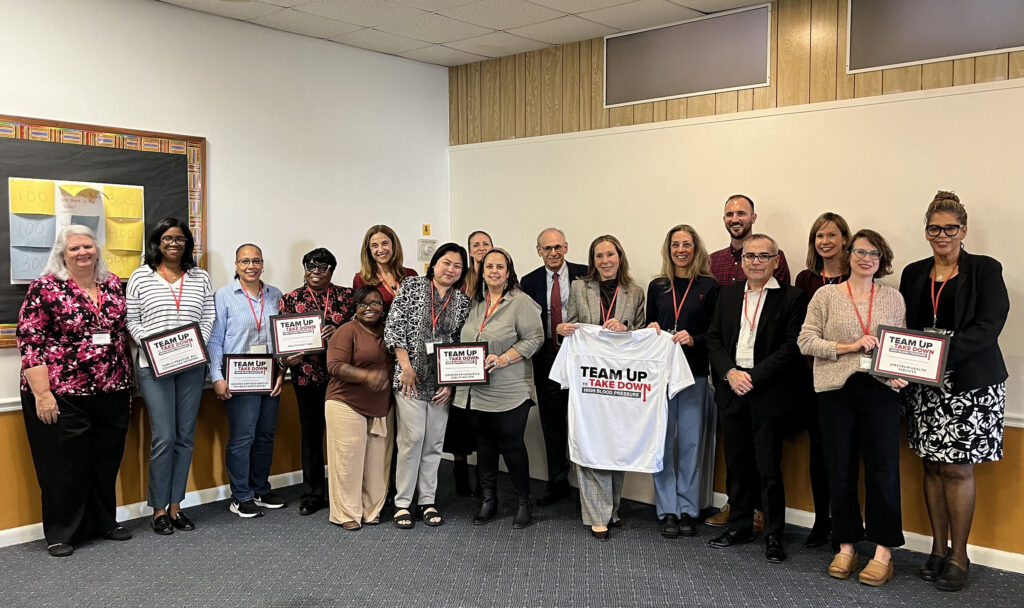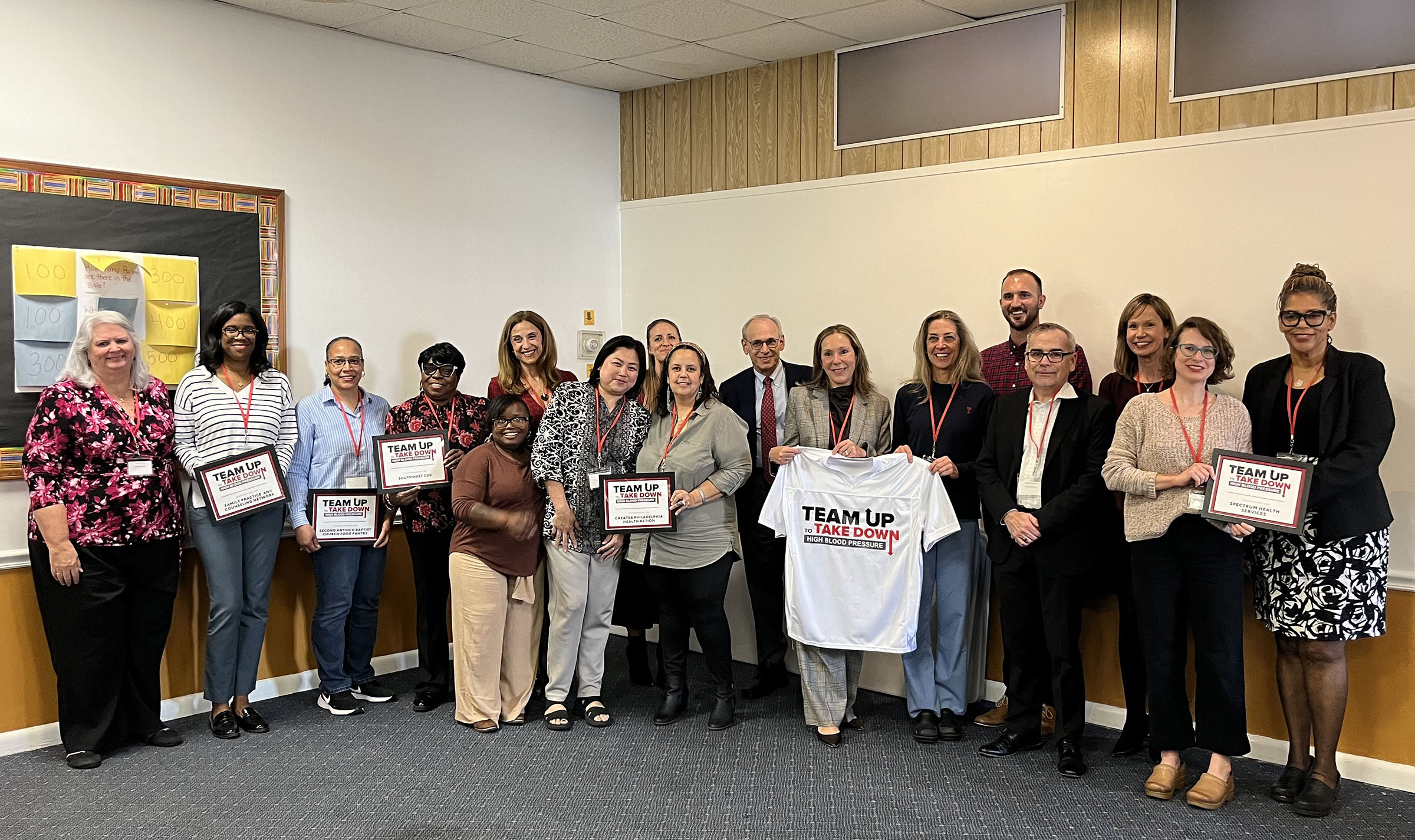Initiative Kickoff at Second Baptist Church Food Pantry

Penn Medicine and the Greater Philadelphia American Heart Association (AHA) launched a collaborative effort aimed at taking down the toll of high blood pressure in the community by removing barriers to accurate blood pressure measurement and helping people get earlier diagnosis and treatment in partnership with a healthcare provider.
The “Team Up to Take Down High Blood Pressure” initiative launched on November 11, at year one partner Second Antioch Baptist Church Food Pantry, located in the heart of West Philadelphia. An initial group of year one project partners – including clinical partners Family Practice and Counseling Network, Greater Philadelphia Health Action, Spectrum Health Services, and community partners Southwest CDC and Second Antioch – came together to learn more about the program and leave with steps to put the effort in motion right away.
“Hypertension, or high blood pressure, disproportionately impacts residents of West and Southwest Philadelphia, compared to other parts of the city. We estimate that well over 100,000 adults living in these areas have been diagnosed with high blood pressure, and there are others who have it, but don’t know. This is particularly concerning as high blood pressure is known as the silent killer and can go undetected for a long time—by which time it can take a significant toll on health,” said Helene Glassberg, M.D., director, Pre-operative Cardiac Clinic and professor of Clinical Medicine in the Perelman School of Medicine at the University of Pennsylvania and President of the American Heart Association’s Greater Philadelphia Region Board of Directors. “Through this three-year initiative, nine community-based organizations and three healthcare practices will work alongside Penn Medicine and the AHA to drive quality improvement in high blood pressure prevention and management, remove barriers to accurate self-measured blood pressure and raise awareness of the fact that this is a significant issue that is taking lives too soon in our community – and that it doesn’t have to be that way.”
Specifically, the initiative aims to implement evidence-based protocols, including community-based blood pressure “screen and refer” measures to help people get treatment, programs where patients can monitor their blood pressure readings at home which are then sent to providers to allow for quicker recalibration of medications to achieve blood pressure control, and annual training for healthcare organizations to assess and build knowledge on how to take an accurate blood pressure reading.
The collaboration also includes a targeted public awareness campaign to empower residents of West and Southwest Philadelphia to get their blood pressure checked regularly and raise awareness for the significant health risks of high blood pressure and how to effectively prevent and manage the condition. Additionally, Penn Medicine and the AHA will host an annual learning collaborative to share best practices and key learnings on barriers preventing patients from effectively managing high blood pressure. The Penn Medicine team will collaborate with student groups from across the University of Pennsylvania to support the clinics and community organizations. Students also have the opportunity to assist in the teaching of the AHA’s EmPOWERED To Serve health lessons—a curriculum designed to harness the passion of individuals and organizations to overcome barriers to health equity—at participating community sites.
This initiative is a powerful collaboration that takes a proactive approach to cardiovascular health with a goal of implementing sustainable approaches that will last well beyond the three-year initiative and can be taken to other communities in Philadelphia and beyond.
For more information on the Initiative, contact Jeffrey Salvatore, MSN, RN, CCRN-CMC, vice president, Community Impact, Greater Philadelphia AHA, at Jeffrey.salvatore@heart.org.
